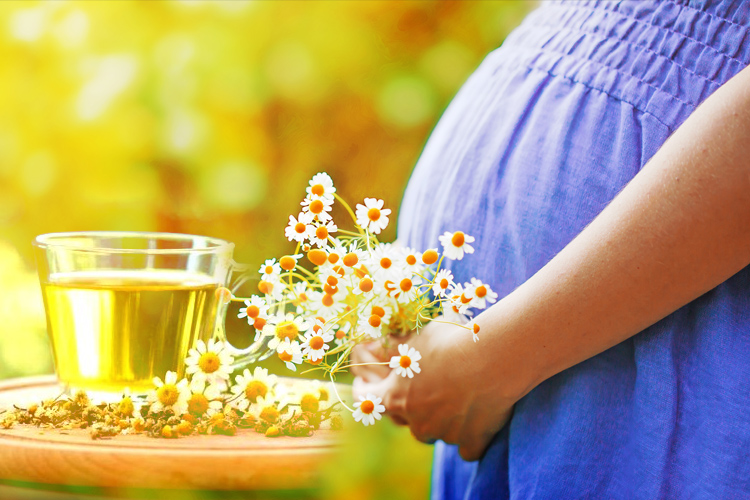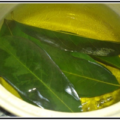Chamomile tea is a popular tea made from the daisy-like flowers of the German chamomile plant. It has a fruity, apple flavor and has long been used for treating all kinds of ailments and especially as a calming respite after a busy day. (It’s even known for controlling damping-off disease in plants.) You can use fresh or dried flowers and you’ll need a teaspoon or two for every cup of tea.
Chamomile tea and Fertility
Research has found that women getting less than seven hours of sleep are 15% less likely to get pregnant than women who got seven to eight hours. On the other hand, women undergoing a treatment like IVF who got seven to eight hours of sleep were 25% more likely to get pregnant than women who got nine or more. Chamomile tea relaxes nerves and soothes the nervous system, therefore helping you sleep better. It lacks the addition of caffeine, and is best consumed before sleeping”. In one study, postpartum women who drank chamomile tea for two weeks reported better sleep quality compared to a group that did not drink chamomile tea. They also had fewer symptoms of depression, which is often linked with sleeping problems.
Several recent studies have found links between women’s levels of day-to-day stress and lowered chances of pregnancy. For example, women whose saliva had high levels of alpha-amylase, an enzyme that marks stress, took 29% longer to get pregnant compared to those who had less. Chamomile tea is a gentle relaxant and acts as an effective natural sedative, thereby reducing stress.
Research studies show that around 1 in 4 men with type 2 diabetes have low testosterone levels (hypogonadism). Low testosterone levels can lead to problems that can reduce fertility such as low sperm count, erectile dysfunction, and decreased sex drive. Drinking chamomile tea may aid in lowering blood sugar levels. Its anti-inflammatory properties may prevent damage to the cells of your pancreas, which occurs when your blood sugar levels are chronically elevated. The health of your pancreas is extremely important, as it produces insulin, the hormone responsible for removing sugar from your blood. In one study of 64 diabetic people, those who consumed chamomile tea daily with meals for eight weeks had significantly lower average blood sugar levels than those who consumed water. Diabetes directly affects fertility in the human body. The scientific reason behind the same is that the oxidative stress caused due to high glucose level damages the DNA of the sperm. Thus, DNA gets damaged and fragmented.
How to Use Chamomile Tea For Fertility
Brewing Chamomile Tea
- What You’ll Need:
- Chamomile flowers (dried is good, newly harvested is best!)
- Nearly-boiling water
- Tea cup or mug
- Tea ball or infuser
- Strainer (optional)
Brewing Method:
- Heat your tea water just to the boiling point.
- While the water is heating, add fresh or dried chamomile to your tea ball or infuser. Then set the tea ball/infuser into your teapot or cup.
- Pour the near-boiling water into your teacup or mug. Cover with a lid or saucer. Now, allow your tea to steep for 5-7 minutes.
- Remove the tea ball or infuser from your cup, and set it aside.
Tea Bag
To make chamomile tea, steep a chamomile tea bag in hot water for 5 to 10 minutes in a mug covered with a saucer. Then, drink the infusion when it has cooled to the point it is safe to drink.
Your tea is ready to sip. Drink one to four cups daily.
Chamomile Tea Tips
- For each cup of water, use 2 teaspoons of fresh chamomile flowers or one teaspoon of dried. Adjust the amount of herbs to your personal taste.
- Avoid using too-hot water. Fresh chamomile blossoms are too delicate to handle water that’s at a “rolling boil”.
- The light, floral sweetness of chamomile tea is perfect as-is. If you’d like it even sweeter, stir in a little bit of honey.
- Chamomile blends beautifully with many other tea herbs. Combining apple mint with chamomile highlights the light fruitiness of both herbs.
For a deliciously relaxing sleep-time tea, try lemon balm and chamomile, Lemon is chock-full of Vitamin C which is a powerful antioxidant for fertility, and is thought to prevent age-related decline in ovarian function. Vitamin C is also associated with a shorter time until pregnancy. The lemon peel has pectin which helps emulsify the fats you add-in and the lemon oils. Lemon peel also has additional antioxidants which are crucial for developing healthy eggs (these particular ones are oligomeric proanthocyanidins or OPCs). Supposedly some of the substances in the lemon peel also help remove harmful forms of estrogen from your body (like those from chemicals). SEE: Health Benefits and Side Effects of Chamomile Tea






